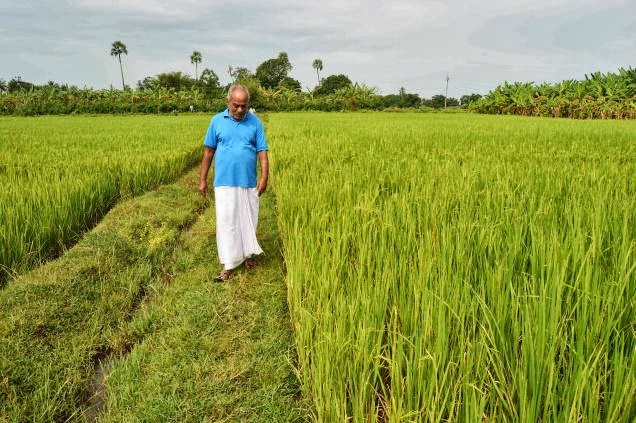Appeal for Fund
Generation
(Target
Audience : NRIs,Scientists,Professionals,Academicians ,Friends and
Relatives)
Myself
,Mr Natabar Sarangi,a retired teacher of 81 years age ,honestly
appeal you for your esteemed support for completion
of a project (A building that would work for the research on Organic
farming, located at Niali,Dist-Cuttack,Odisha).The
project estimate is 69 lakhs. The plan is designed to
1.
House a training hall for share croppers , small and marginal farmers
2.
A museum to focus the Agricultural Heritage of India
3.
A Library for the farmers and students of Agriculture ,Veterinary
Science and allied Subjects
4.
Farmers' Boarding Room
5.
A small Conference Hall
In
last 15 years of work ,we have trained more than 2000 farmers on the
principle and methodology of indigenous farming .It is a very small
number and in future ,we have plan to train 10000 farmers .We have
formed a organic farmers cooperative and we plan to increase this to
200 in numbers and each group will be within 20 farmers. We have
trained about 10 to 15 young people on sustainable farming who can be
considered as people agi scientists. To facilitate such training ,we
have initiated this project.
Mr
Sashi Bhusan Behera,Honorary member of Rajya Sabha has sanctioned 10
lakhs for the beginning of the ground floor from his local area
development fund. That is his limitation and more funds we have to
arrange from the benevolent persons like you .Our Main aim is to make
a marginal farmer to revive seed sovereignty and with less input cost
to make sustainable farming a viable alternative to industrial
farming .Our main thrust area is organic farming and conservation of
indigenous rice varieties .As all of you know,Industrial agriculture
has threatened the existence of life in our planet .Chemical farming
push enough pressure on fossil fuels that may not last for many years
to come .Fertilizers and pesticides contribute to global warming.
Farmer’s suicide is a bitter result of green revolution
technology.MNCs have almost in their way to monopolize seed markets.
Consumers experience health risk due to poisonous foods as a result
of pesticides.Environment also is in danger .So ,organic farming is a
viable alternative.We shall be very happy to welcome you to see our
work at the site .
Details
of Bank Account to Transfer Fund
Account
No : 11476338468
Name
: Mr Natabar Sarangi
Bank
Name : State Bank of India ,Niali,District -Cuttack ,Odisha ,India
Swift
Code : SBININBB270
IFSC
Code : SBIN0004375
MICR
Code : 752002130
Branch
Code : 004375
Contact
Phone Numbers :
9937620883/06712803382
, 9437019395/9583666495,9238370846
